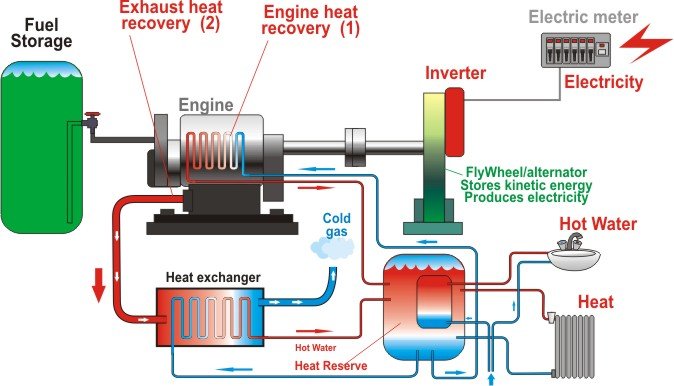As energy bills rise and concerns grow about the environmental impact man is having on the planet, many are already turning to green and renewable technologies in their homes.
Even the government is a keen advocate of sustainable technology, unveiling details about the new Green Deal: an initiative that will “revolutionise the energy efficiency of British properties.”
This Green Deal will offer consumers energy efficiency improvements to their homes, community spaces and businesses at no upfront cost, and payments will be recouped through a charge in installments on the energy bill.
But before this happens, it’s worth having a little look at what technology is currently out there and give you an idea where electricians can come in and help plan your green and low carbon home.
Firstly it’s important to realise where most of your spent fuel ‘goes’. Over half disappears though heating which makes it crucial to invest in a properly insulated home – a builder can help with this bit.
Where you can save money after that is through your use of electricity. There are a handful of electricity generating technologies available which include wind turbines, solar electricity (photovoltaics), and micro-CHP. Consult your electrician to find about more about the following ways of investing in your reduced carbon future that could also save you money!
Solar PV modules convert sunlight into electricity for use in the home or can export it to the national grid (where you will get money back). The typical domestic systems are around 2.2 kW in size, and can provide around 1,850 kWh a year.
This is over 40 per cent of the electricity used by a typical household and this technology is one of the simplest to install as it has no moving parts. Typically, it should last around 8-10 years with basic maintenance but you’ll need a large space of around 15sq metres to get the most out of it.
Wind turbines
In a good site, small scale domestic wind turbines are an effective renewable energy option in terms of energy output. You’ll need an average annual wind speed of at least 5 metres per second and an free flow of wind though.

But these can be costly to start off with. A small 1kW building mounted wind turbines costs around £2,000 but six of these (6kW) could generate income and savings of around £3,200 per year.
Micro-CHP
Micro-CHP stands for micro combined heat and power. It’s a combination of heat and electricity simultaneously, from the same energy source such as a gas boiler, in homes or buildings.

Chips cost around £5,500 and can be installed for around £2,500 into a conventional boiler. They generate up to 1kW of electricity per hour once warmed up which is enough to power the lighting and electrical appliances in a typical home.
These technologies may seem pricey now, but early adopters could save way in advance of the crowd before it becomes the ‘norm’ with the help of dedicated electricians and tradesmen.
